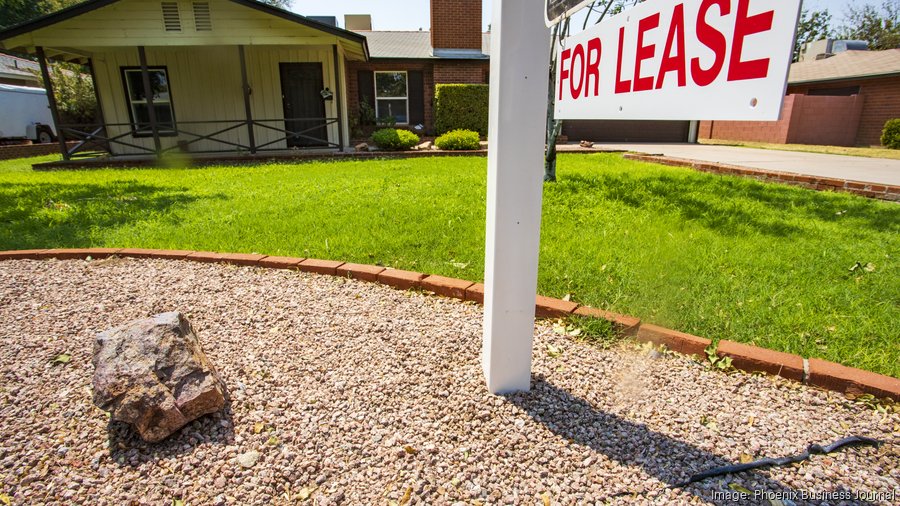
Austin Business Journal writes, "Investors could be launching a bit of a comeback in the U.S. housing market — although the reversal of fortunes comes amid a strategy shift for many investors in the face of low inventory.
Purchases by investors grew 0.5% on a year-over-year basis in Q1, according to analysis by Redfin Corp. (Nasdaq: RDFN). Redfin defines an investor as any buyer whose name includes LLC, Inc., Trust, Corp. or Homes, or any buyer whose ownership code on a purchasing deed includes association, corporate trustee, company, joint venture or corporate trust.
Despite the increase, investors have yet to return to their pandemic-era levels of purchasing frenzy — and they aren't likely to with interest rates remaining elevated, a lack of existing home inventory and rental housing starting to become oversaturated in some markets.
Real estate investors bought about 44,000 U.S. homes in the first quarter — and among the homes they're selling, they're reaping bigger profits than they were a year ago. The typical home sold by an investor in March went for 55.2% more than the investor bought it for, up from 46.3% a year earlier. Only 5.3% of homes tracked by Redfin sold by investors sold for a loss, down from 13.7% in March 2023.
Sheharyar Bokhari, senior economist at Redfin, said the year-over-year gain in investor share is less notable for the increase than for what it represents as a reset of the market.
"This is not really a significant increase," he said. "The level of purchases is still below even what pre-pandemic levels you would see. It’s sort of stabilized at a lower point now. [The amount purchased by investors] is not falling anymore."
Investor purchases nationally began tapering off in the second half of 2022, coinciding with the Federal Reserve's series of interest-rate hikes that lasted into 2023, when investor buying activity also continued to decline.
Although not a significant increase, the uptick in the first quarter was the first time in two years that investor purchasing activity had risen, according to Redfin.
And while institutional investors — those who own 100 or more homes — get a lot of attention in the broader housing market, they're buying less than 2% of all homes, according to data from John Burns Research and Consulting. Investors of all types and sizes in 2024 have purchased about 25% of all homes sold, suggesting a majority of homebuying by investors is coming from small and medium-sized groups.
Still, investors made up only 12% of homebuying activity in 2002, according to the John Burns data, illustrating how prolific investor activity has become in the past 20 years.
Investors today also aren't necessarily ramping up their purchasing activity in the Sun Belt metros they flocked to in 2020 and 2021. Rather, it's California markets like San Jose and Oakland that are seeing outsized increases in investor purchasing activity, according to Redfin's analysis.
That may be reflective of a greater share of wealthy individuals or celebrities that use trusts to purchase their real estate in California, rather than investors, Bokhari said.
"[California markets] have all enjoyed a lot of high-price growth, and prices are up again for a period of time," he said. "San Francisco is seeing price declines, but that's also recovering."
In places like Atlanta and Charlotte, North Carolina — markets where investors three years ago made up one-third or more of all home purchases in a given quarter — investor purchases made up 21.1% and 20.4%, respectively, of all homebuying activity in Q1. Miami continues to be a popular place for investors, with 30.6% of all homes purchased in the first quarter by investors, the biggest share of any metro area analyzed.
The Redfin analysis doesn't include data from metro areas in nondisclosure states, such as Texas.
Big investors change strategies amid lack of inventory
Investors are still buying fewer homes than they did at the height of the pandemic — and some groups are actually unloading some of their inventory.
Bokhari said he's heard anecdotally bigger investors have become net sellers rather than prolific buyers.
"They’re putting more on the market than they’re taking off," he said.
Dallas-based Invitation Homes Inc. (NYSE: INVH), one of the country's largest single-family rental companies, in the first quarter acquired 273 homes for about $96 million and sold 399 homes for about $157 million.
Major investors that typically buy existing homes and then rent them out also increasingly are working with homebuilders, thanks to a lack of existing home inventory.
Invitation Homes, for example, is working with D.R. Horton Inc. (NYSE: DHI), Meritage Homes Corp. (NYSE: MTH) and Dream Finders Homes Inc. (Nasdaq: DFH) to build about 500 new build-to-rent homes this year, in markets like Charlotte; Jacksonville, Florida; and Nashville, Tennessee, said Dallas Tanner, CEO of Invitation Homes, during the company's first-quarter earnings call.
Charles Young, president and chief operating officer at Invitation Homes, also during that call said several Sun Belt markets that were "humming" during the pandemic have since moderated on rental-growth growth and other metrics. He said that while markets in Florida remain strong, Tampa and Orlando in particular are seeing a little bit of a slowdown relative to what they was seeing in the past couple of years.
"I think we’re just seeing back to normal kind of seasonality," he said. "And coming off of Covid, it feels like it’s a slowdown. But the reality is, it’s still really healthy.""
Source: Austin Business Journal
Written by: Ashley Fahey
Published: May 20, 2024
Posted by Grossman & Jones Group on
Leave A Comment